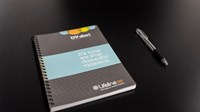Training Frontline Workers to Support First Nations Women and Children Experiencing or at risk of Family Violence
Kerry Wall, First Nations Lead DV-alert
Did you know that First Nations women are six times more likely to die from family violence than non-Indigenous women in Australia?*
First Nations communities are disproportionately affected by violence as a direct result of colonisation and the ongoing impact of dispossession, loss of culture, discrimination, ableism, classism, and racism.
The DV-alert First Nations Lead Trainer and subject matter expert, Kerry Wall is dedicated to ending family violence in First Nations communities.
“To help achieve this, we need increased levels of knowledge and greater awareness of culturally appropriate and safe domestic and family violence training for our frontline workers,” Kerry said.
DV-alert is a nationally recognised domestic and family violence response training program delivered on behalf of Lifeline since 2007. DV-alert training aims to empower frontline workers – such as social workers, nurses, teachers, housing, alcohol and other drug counsellors – to support people who may be experiencing, or at risk of, domestic and family violence.
Lifeline Australia has offered a two-day DV-alert Indigenous workshop since 2012, specifically designed to address violence against First Nations women and girls. Building on this, DV-alert has recently introduced a First Nations one-day focus workshop.
DV-alert workshops have been proven to produce positive changes in attitudes and behaviours, which is a critical step in preventing and addressing domestic and family violence and gendered violence. Training non-Indigenous participants has resulted in significant shifts in attitudes and an increased understanding of the unique contexts and needs of First Nations women, their children, families, and communities.
Ahead of sharing her insights at the upcoming Indigenous Wellbeing Conference on 30 October, Kerry said the DV-alert First Nations workshops fills a critical gap in culturally appropriate family violence training.
“DV-alert First Nations workshops have the potential to have significant positive impacts towards ending violence against First Nations women and their children, families and communities,” she said.
The DV-alert learning models align with the RRR model: Recognise, Respond and Refer. All DV-alert First Nations workshops emphasise another ‘R’ which stands for Respect. Kerry emphasised that DV-alert First Nations workshops have a particular focus on carrying out the RRR model in a way that respects First Nations people, culture, beliefs, practices, and gives voice, self-determination and agency for violence against First Nations women and girls.
“We ensure all First Nations workshops are culturally safe and appropriate, strengths based and healing informed but importantly pays respect to community-led and self-determined approaches,” she said.
Crucially, the training program is 100% designed by First Nations people from the ground up, not co-designed or in partnership.
“It is a true Aboriginal-led training program – to carry the voices of violence against First Nations women and children, for our people, and communities and for other Australian frontline workers who support us,” Kerry said.
Each DV-alert First Nations workshop is delivered by two trainers, with at least one being Aboriginal or Torres Strait Islander. Prior to workshops, culturally appropriate community engagement is conducted by Lifeline centres and First Nations trainers to ensure contextual relevance to the cultural needs of the community.
DV-alert First Nations two-day workshops have been delivered 389 times across the country, reaching from Wilcannia to Tiwi, Arnhem land to Esperance, Nhulunbuy to Kununurra, Thursday Island, Palm Island to Groote Island.
Over 5,100 frontline workers have been equipped with knowledge and skills to recognise, respond, and refer to violence against First Nations women and children.
Kerry proudly stated that 80% of First Nations workshops are delivered in non-metropolitan areas, ensuring DV-alert First Nations workshops reach communities who may be overlooked by other providers.
“To hold so much diverse cultural knowledge is a privilege bestowed on me and one that Lifeline Australia and the DV-alert team has fostered and supported throughout my professional practice,” she said.
Under the guidance of a passionate trainer like Kerry, DV-alert First Nations stream empowers frontline workers to recognise the signs, respond confidently in a culturally safe way, and refer appropriately to support services.
If you're a dedicated frontline worker ready to make a tangible impact towards the concerted national effort to end violence against women and girls, apply for a DV-alert workshop today.
Visit www.dvalert.org.au and be the change.
Kerry Wall, proud Wangkumara woman, mother, and grandmother.
Born and bred in Broken Hill, Kerry is employed by Lifeline Australia to lead all DV-alert First Nations programs and DV-alert community engagement strategies nationally, as well as DV-alert Team’s commitment toward the National Plan to End Violence against Women and their Children.
Kerry has spent most of her adult life supporting survivors of domestic and family violence as well as people who use violence, using a holistic approach to work with family and community for better safety outcomes for all.
Trained in Community Service Work, Domestic and Family Violence, Social Justice, Suicide Prevent and Intervention, Trauma Informed Practice, Mental Health, Training and Assessment, Leadership and Criminology, Kerry’s great passion is to bring healing to others and to find healthy perceptions of themselves, and strength and empowerment for safety and security.



